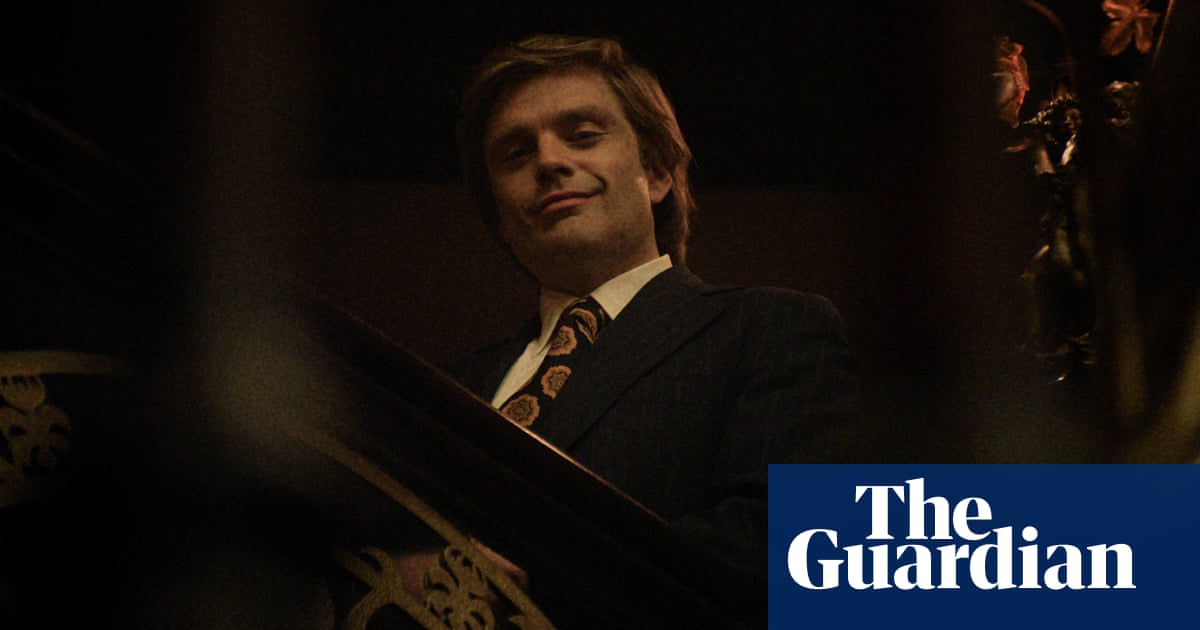
I’ll be the first to admit that I did not want to watch The Apprentice, the new film chronicling Donald Trump’s ascendancy through 1970s and 80s New York. Like most people in my liberal social circle, my reaction to the movie’s existence was essentially: why? Why watch two hours of a de-handsomed (though still recognizable) Sebastian Stan as the young real estate mogul, and Jeremy Strong as his mentor Roy Cohn, go through events I already know – if not in exact detail, than certainly in spirit – in the life of a man I actively wish I knew less about?
And yet I found the film, written by Vanity Fair’s Trump chronicler Gabriel Sherman and directed by Iranian Danish film-maker Ali Abbasi, to be surprising. Not in material – even if you’re not the most well read on Trump prior to his presidential campaign in 2015, his public character has long been consistent – but in its straightforward approach to depict the life of the former president. Though predictably dismissed by Republican figures and Trump himself as a hack job (or more specifically, “a cheap, defamatory and politically disgusting hatchet job, put out right before the 2024 Presidential Election, to try and hurt the Greatest Political Movement in the History of our Country”, as Trump wrote on Truth Social), The Apprentice is an overall sincere movie, attempting to depict a highly contentious figure as close to the emotional truth as possible, while remaining entertaining. As Sherman told me before its release: “It’s such a universal story about the apprentice outstripping the master … I hope people can experience it on its own terms and not bring all their political baggage to it.”
A nice sentiment, which meant, unfortunately, that it was never going to go down well with highly polarized American audiences. I remember thinking, as I watched Stan do as decent a job as possible at playing a man whose tics are known by tens of millions, as Strong effectively conveyed Cohn’s lizardly stare and calm ruthlessness, that it wouldn’t really matter how well The Apprentice delivered on its self-appointed mission to dig into the character of Donald Trump. American audiences, most of whom are not keen to set aside political baggage this close to an election, wouldn’t bite; this could only appeal to people outside the US, who either do not have to think about him every day or do not possess some native understanding of Trump’s distinctly American celebrity.
To wit: the film, following a protracted and difficult distribution search that nearly killed the movie, made just $1.6m in 1,740 US theaters during its opening weekend – a flop, particularly for a film with awards aspirations. Unsurprisingly, it found most of its viewers in large, urban liberal enclaves such as New York, Los Angeles, Chicago, San Francisco and Washington DC. But The Apprentice has performed relatively well overseas – it made $835,000 in its opening weekend in the UK, landing behind The Wild Robot and Smile 2 (the rule is usually to view it as representing a 10th of the US box office), and over $623,000 in 319 theaters in France.
Part of the film’s domestic box office woes owe to business issues outside the film-makers’ control. After a splashy premiere and positive critical reception at the Cannes film festival in May, The Apprentice struggled to find distribution, partly due to Trump’s political influence and partly due to old-fashioned market timidity. Days after the premiere, reports emerged that the film’s principal financier, Kinematics – founded by the son-in-law of billionaire Trump donor Dan Snyder – objected to a scene depicting Trump’s alleged rape of his wife Ivana (Maria Bakalova). (The scene, as with everything in The Apprentice, is grounded in some historical record; Ivana recounted the event in a 1990 divorce deposition, under oath.) Simultaneously, Trump’s legal team issued a cease and desist order, threatening to sue. The objections had their intended chilling effect – according to the film-makers, every major American distributor and streaming service passed.
The Apprentice has only reached theaters thanks to a Kickstarter campaign (dubbed “Release the Apprentice”), a last-minute buyout of Kinetics and an 11th-hour save by renegade indie outlet Briarcliff Entertainment. The machinations effectively gave Briarcliff only five weeks to market the film – a brief window further hampered by US networks refusing to air spots during political coverage, not to mention boycott calls from Republicans such as Mike Huckabee.
But the film is, ultimately, an outsiders’ perspective of Donald Trump (most of the cast and crew hail from Europe or Canada) – perhaps crucial for handling recent American history fairly, though always a tough sell to US audiences – made with appeals to objectivity and curiosity that will only work on those outside the US context. The Apprentice is overall well made and well acted, and generally earnest in vivifying the extensive reporting done on arguably the most famous living American. It is not not worth watching, as a film about a student gradually eclipsing his teacher in a bankrupt New York, and yet also not particularly insightful on its subject. Though to be fair, little is – despite Republicans’ continued delusions of seriousness, Trump has been clearly who he is for a long, long time, and in the news on a daily basis for going on a decade. There is nothing to say that has not been said.
Still, I agree, rationally, with the film-makers’ pleas to give it a chance, to resist corporate censorship, to see the film as a chance to critique, as Abbasi put it, the “social Darwinism that is built-in in American society, that didn’t come with Trump and will not end with Trump”. To accept that, to paraphrase executive producer James Shani, it may not teach you anything new, but will make you feel something different. (Discomfort, for one, or the limitations of one’s pre-existing exhaustion.) But I also understand why, all good and open-minded and artistic intentions aside, it is falling on deaf ears in this country.
Source: theguardian.com





















